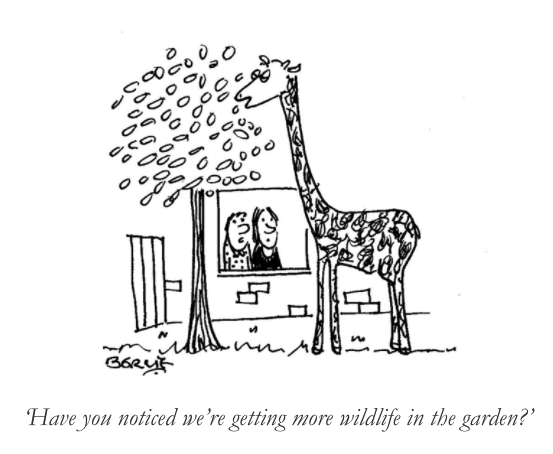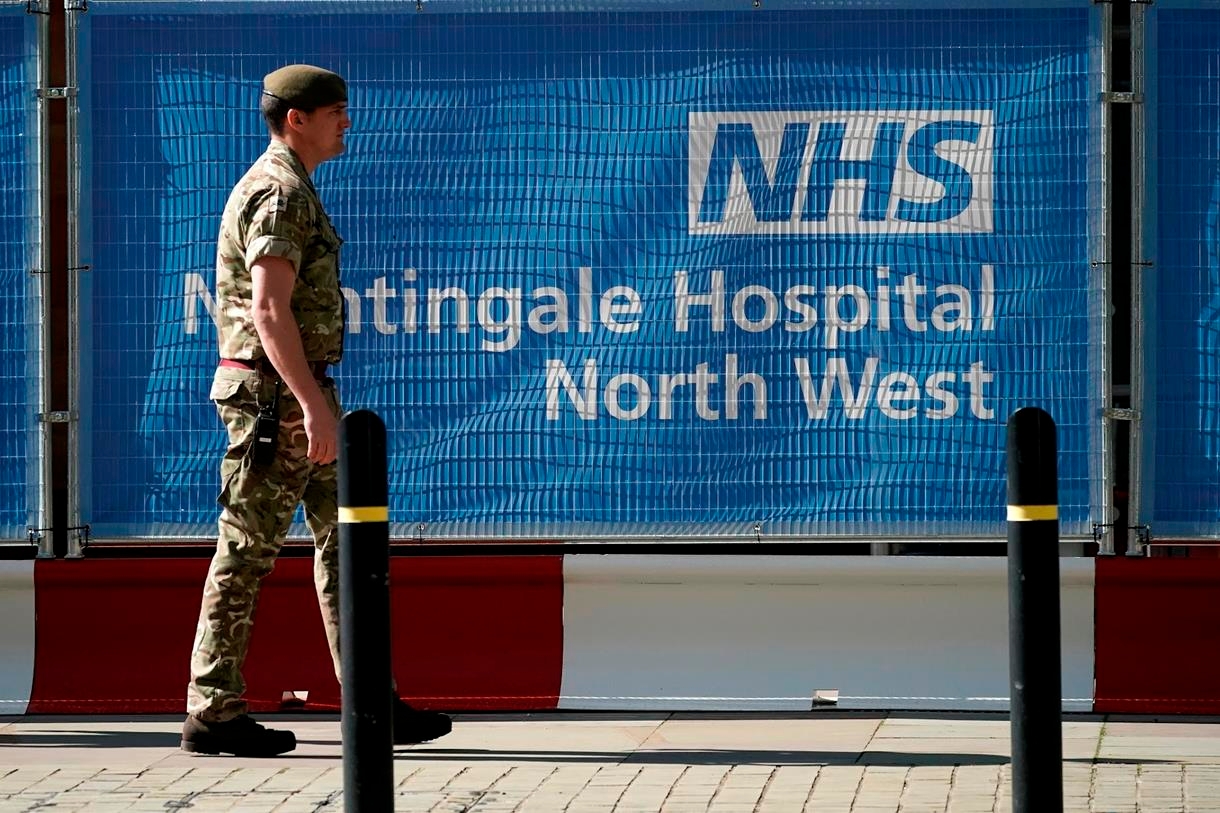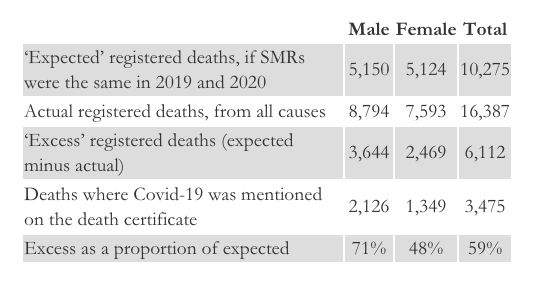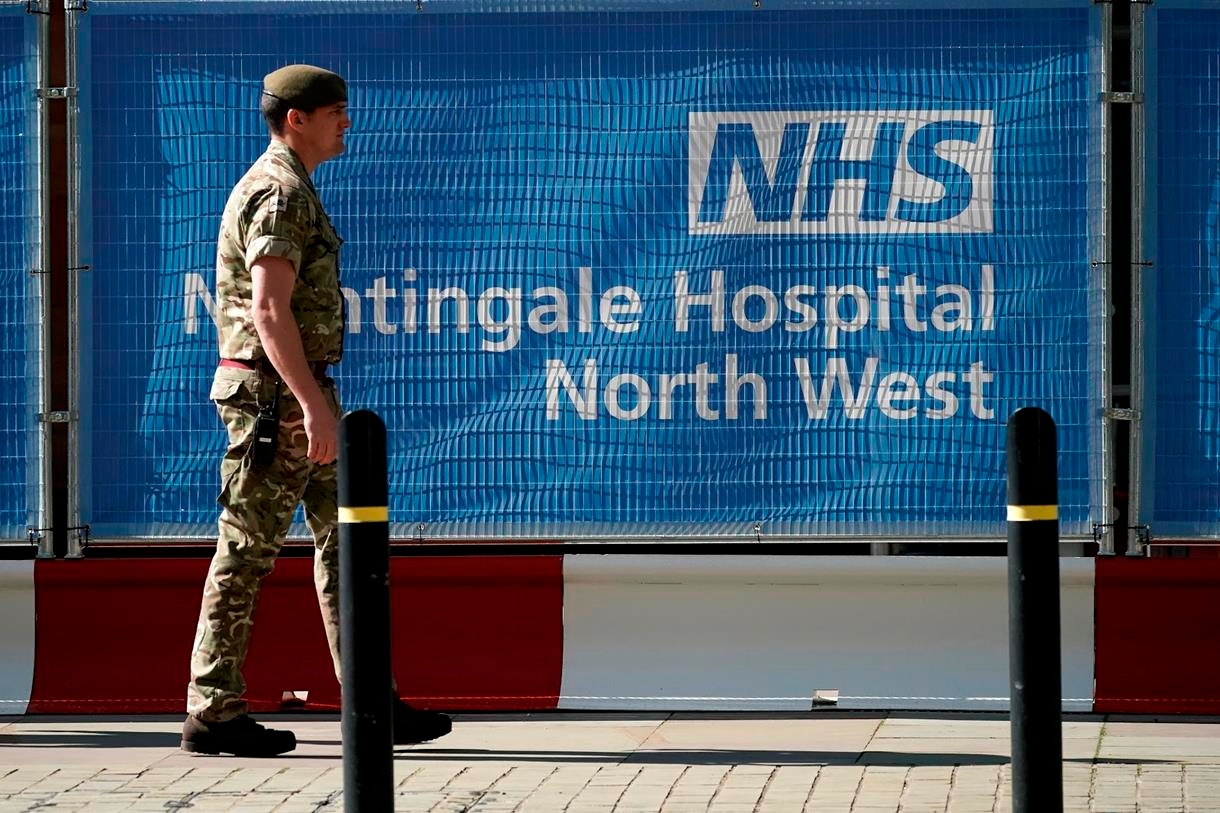The Spectator brings you the latest insight, news and research from the front line. Sign up here to receive this briefing daily by email, and stay abreast of developments both at home and abroad:
- The Spectator has learned that the UK will not request an extension to the Brexit transition period. James Forsyth has the details below.
- Donald Trump has announced the US will suspend its funding for the World Health Organisation as it investigates its organisation’s handling of Covid-19.
- Matt Hancock has pledged to prioritise care home residents and staff members for Covid-19 tests.
- A leaked document from Public Health England reveals a last-resort plan to reuse PPE.
- A top scientific adviser has said that sunbathing should be allowed in public parks.
- British soldiers are being trained to administer coronavirus testing swabs in a bid to help the government reach its target of 100,000 tests by the end of the month.
- Keir Starmer has called on the government to release its plans for lifting the lockdown. Katy Balls has the details on Coffee House.

David Frost, the Prime Minister’s chief Brexit negotiator, has held discussions with the First Secretary of State Dominic Raab and other senior ministers in the past few days. As I say in tomorrow’s Spectator, the conclusion of these discussions has been that the UK will not request an extension to the transition period. Interestingly, I understand that no one in these discussions backed asking for an extension.
The thinking is that a delay would not solve the fundamental policy problems and that a deal is either possible or not. Another factor, I understand, is that the government worries about the cost of any extension. There is concern that extending could drag the UK into the arguments about who pays for the various EU schemes designed to protect the European economy and preserve the eurozone. It is worth remembering, though, that it isn’t only the UK who can request an extension to the transition period. There is nothing to stop the EU proposing one, though the EU has acted as if requesting an extension is a decision for London alone.
If the EU did ask for more time, it would put the government in a difficult position. Rejecting the request would sit ill with the idea that the UK wants to be a good neighbour to the EU. Frost and Michel Barnier will video conference today. But it now seems that the only way the transition period will be extended is if the EU requests it.
The pound, the euro and Covid-19
The stigma of being associated with the EU – and the eurozone in particular – will only increase as a result of the coronavirus crisis… We’ve long had our sights on a return to 0.80 over the coming year for euro-sterling (a sterling rise of nearly 10 per cent) but now we are starting to think that this might be a bit too conservative.
– Steven Barrow, head of Standard Bank’s foreign-exchange strategy explaining why the pound may benefit from the coronavirus crisis.

Donald Trump suspends funding for World Health Organisation
The United States has long regarded itself well prepared for a pandemic – but it assumed the enemy would be pandemic flu, not Covid-19. This was a major oversight, as the Sars epidemic showed the world that coronaviruses, which lie behind about a third of common colds, are capable of mutating into something whose victims are in need of critical hospital care. Asian countries updated their pandemic response kits accordingly, with mass testing and patient-tracing technology. Neither Britain nor America thought to do likewise. In Britain, we’re starting to admit to flaws in our pandemic response, but President Trump is less inclined to do so, and is instead directing fury at China and promising to halt funding to the World Health Organisation a move that would seriously cripple WHO, as the US remains its biggest funder to date. There are a far wider number of questions that Trump should be asking his own government agencies – not all of the blame lies abroad. But as the WHO has made repeated mistakes in the handling of Covid-19 – and ethical missteps, like keeping Taiwan reps out of virus emergency meetings – it’s worth remembering a useful rule of politics: just because Trump says something, it does not make it wrong.

Global news
- The Chinese government failed to tell its citizens that they were facing a deadly pandemic for six days, according to internal documents obtained by the Associated Press.
- The last patients have left China’s Leishenshan hospital, the temporary health centre that was built in under two weeks. Meanwhile, the Chinese government has launched a compensation programme for Huanan wet market merchants after the vendors were shut down.
- The US State Department raised concerns about safety issues at a Wuhan lab working on bats two years before the coronavirus outbreak.
- South Korea has held the largest election since the pandemic began, defying pressure to delay the vote.
- A French court has told Amazon it can only ship ‘essential items’, in a bid to protect employees. Meanwhile, the company has hired an estimated 75,000 new workers to deal with increased demand.
Research
Switzerland’s Covid-19 puzzle: French-speaking Switzerland has lower detection rates for Covid-19 cases than German-speaking parts of the country, with between 12 per cent and 20 per cent of symptomatic cases diagnosed. But in German-speaking Zurich, an estimated 40 per cent of cases have been diagnosed. The Tribune de Genève calculated the figures, with researchers at the London School of Hygiene and Tropical Medicine, by adjusting the observed case fatality rate for delays in reporting and assuming a true case fatality rate of 1.4 per cent. In Italian-speaking Ticino, which neighbours Lombardy, it’s estimated that only 12 per cent of cases have been detected. But even with that under-reporting, at most one in ten people in the canton have had the disease. The paper says the presence of university laboratories in some cantons, and advice (now lifted) to only test those at risk contributed to the variation.
In data: Excess deaths rose 59 per cent in the week ending 3 April, according to the Institute and Faculty of Actuaries’ weekly mortality monitor.

Coronomics
- G7 countries agree to suspend the debt of poorest countries – but only if G20 joins in.
- Ten major US airlines have reached a deal with the federal government for payroll support.
- Heathrow airport has seen the number of cargo flights increase fivefold since the beginning of the crisis.
- The Competition and Markets Authority has relaxed competition rules to allow firms to coordinate their coronavirus response.
- Lloyds bank has been criticised for refusing to grant loans to companies backed by the government’s Enterprise Investment Scheme.
Our latest podcast
More from The Spectator
Rishi Sunak tries to calm coronavirus crunch fears – Katy Balls
France won’t be fooled by Macron’s radical reinvention – Gavin Mortimer
OBR analysis reveals staggering impact of Covid-19 on UK economy – Kate Andrews
Globalisation is scarcely new: it dates back to the year 1000 –Katrina Gulliver
The unexpected joy of going to church online – Fiona Mountford







Comments